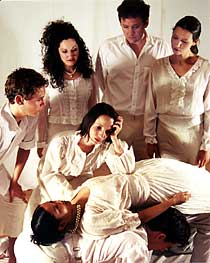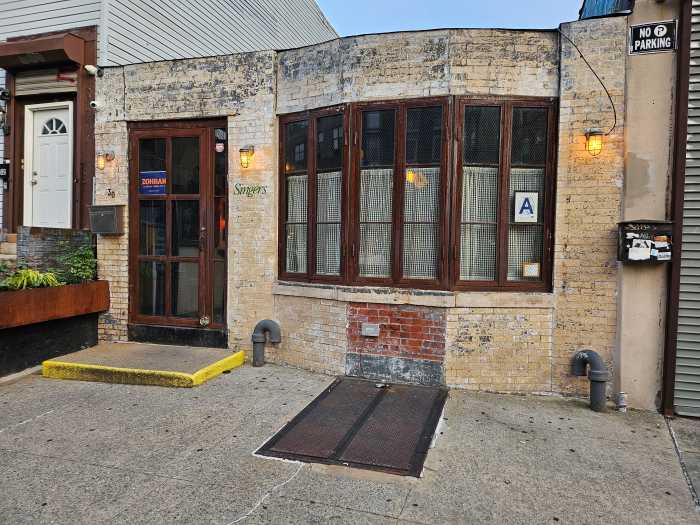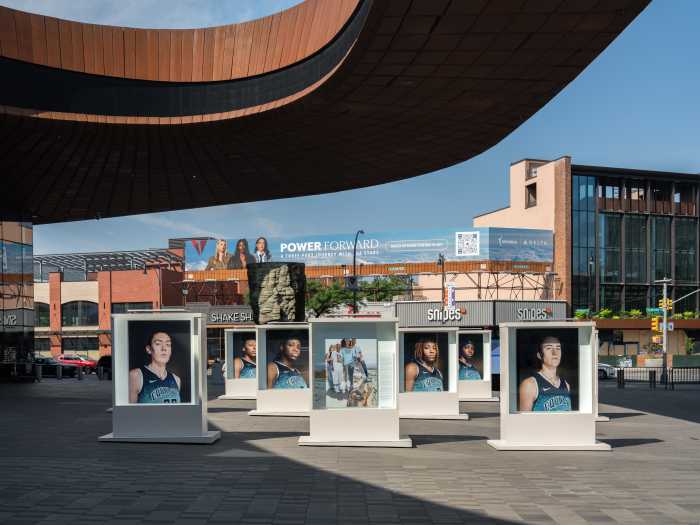Albert Einstein rocked the world at the
dawn of the 20th century when he declared that space, time and
mass are not absolutes, but rather in an absolute relationship
to one another. In fact, said Einstein, our perception of time
changes depending on the location of the observer relative to
the event being observed.
This new interpretation of reality made way for possibilities
that had previously been relegated to the world of fantasy. It
had a profound effect not only on science, but also on literature,
theater and the visual arts.
In 1993, Alan Lightman wrote a novel that portrayed a young Einstein
who by day works out the details of his theory of relativity
and by night dreams of new worlds with other realities. Three
years later, a group of theater majors at the University of Florida
began staging the novel. And eventually Ralf Remshardt, David
Gardiner and Paul Stancato turned Lightman’s bestseller into
a play that earned director-choreographer Stancato a 2001 FringeNYC
Festival Best Director award.
This fall, the play was taken to the Kraine Theater in the East
Village as part of its sci-fi event. Because of its popularity,
its run has been extended through Nov. 18.
The play features some talented Brooklynites. Carroll Gardens
resident Brian Rhinehart co-directed the play and is featured
in the cast. India McDonald, who lives in Cobble Hill, is also
a cast member. Costume designer Lara Kazan is a Park Slope native
who helped to open Frida’s Closet on Smith Street. But there
are better reasons to go see "Einstein’s Dreams" than
merely supporting fellow Brooklynites.
"Einstein’s Dreams" is a brilliantly choreographed
and beautifully scored play that makes the abstract concept of
time poignantly palpable. Dressed in white and using a minimum
of well-selected props, a cast of five men and four women use
speech that’s more like poetry and movement that’s more like
dance to dramatize different kinds of time – all set to David
Homan’s classically influenced score for string quartet.
Punctuated by the intermittent appearance of the young Einstein
himself, a series of episodes illustrate what life might be like
if time were an endlessly repeating circle, if time went more
slowly further from the center of the Earth and people lived
in mountains and houses raised on stilts, if everyone were to
know the exact moment the world would end and "a world of
one month [were] a world of equality," if time went backwards,
faster, slower, or if, in fact, there were no time at all.
This last possibility leads to the play’s most heart-rending
line: "Life is a vessel of sadness, and without time there
is no life."
The cast of "Einstein’s Dreams" works together so fluidly
and flawlessly that no single actor becomes the focus of attention
for long. Scene flows smoothly into scene producing an almost
hypnotic effect that can be exhilarating, but (in time) threatens
to become monotonous.
"Einstein’s Dreams," however, runs for an hour and
20 minutes without intermission, just long enough to make its
point and stop short of boredom. The play is indeed meaty food
for thought. Its theme is so metaphysical that only excellent
direction and inspired choreography brings it down to Earth,
so that by the end, "Einstein’s Dreams" is far more
dramatic than a mere mental exercise.
If you see "The Lion King," you may leave the theater
humming a tune. But if you see "Einstein’s Dreams,"
you’ll go home thinking.
"Einstein’s Dreams" continues
this weekend with performances on Nov. 16 and Nov. 17 at 10:30
pm and Nov. 18 at 8 pm. Tickets are $15, $10 students and seniors.
The Kraine Theater is located at 85 E. Fourth St. at Bowery in
Manhattan. For reservations, call (212) 539-7686 or visit www.httheater.org
on the Web.

























